synthesizer
Latest
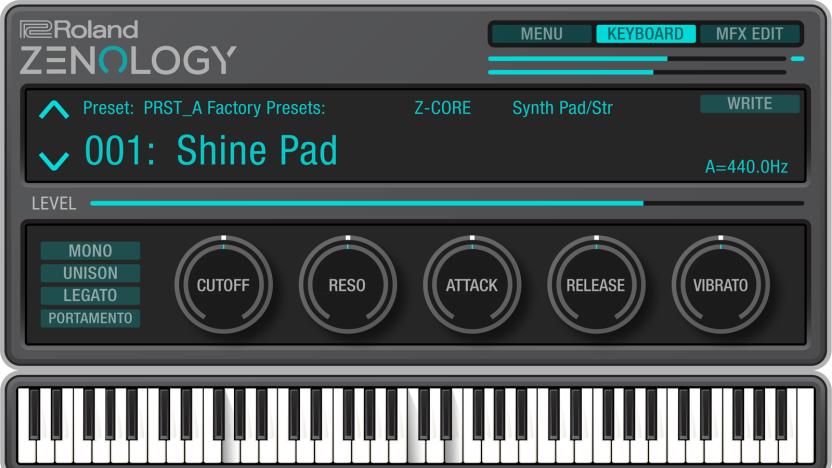
Roland brings its Zen-core synth engine to your computer
As part of its revamped Roland Cloud service, it’s also launching Zenology as a standalone VST instrument that can be used in your DAW of choice. The full version comes packed with over 3,500 different synth sounds and 80 drum kits.
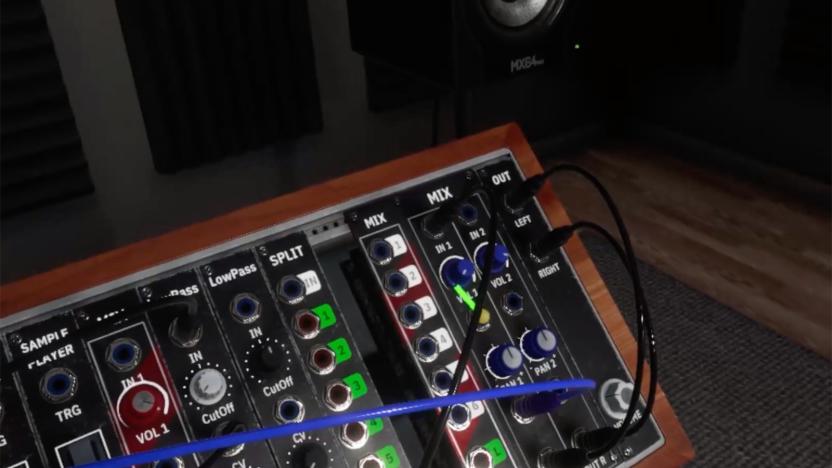
Synthspace recreates the physical presence of a modular synth in VR
Synthspace gives you the physicality of a modular synth in VR, just without the over-the-top costs.
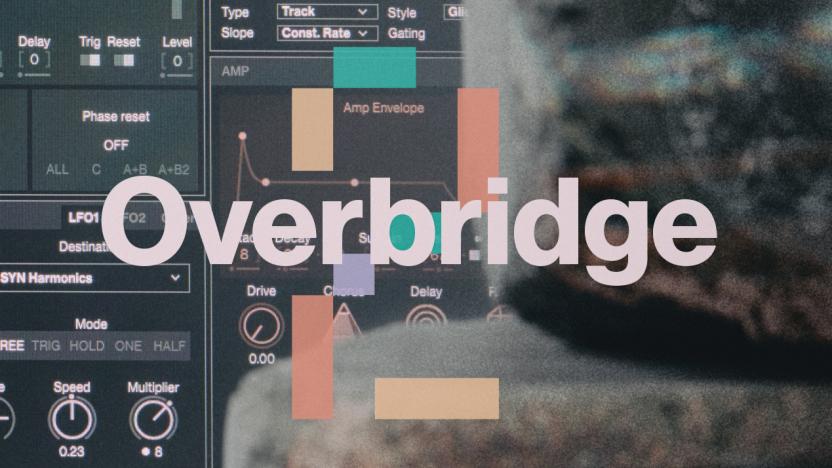
Overbridge 2 tears down the wall between your PC and your synth
But now Overbridge 2 is finally and officially here.
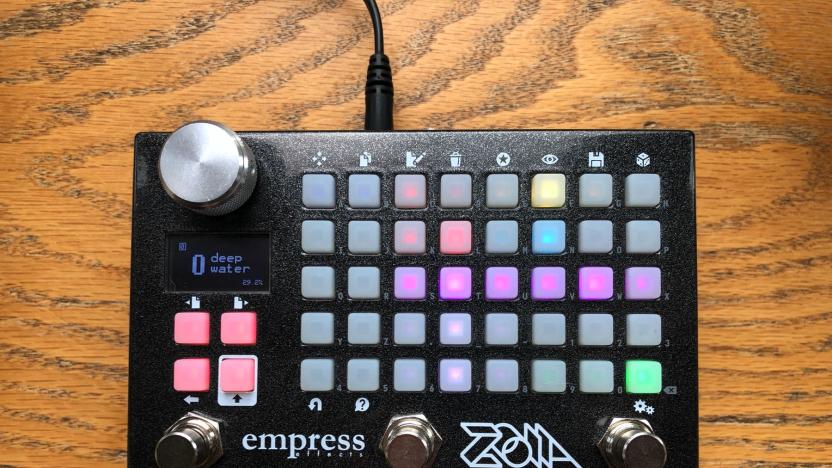
ZOIA review: A complex and rewarding modular effects pedal
Empress Effects ZOIA is unquestionably a one-of-a-kind effects pedal. Its interface can be daunting at times, but it puts an almost limitless number of sounds at your feet.

Endlesss is a simple, fun music collaboration app
Thanks to social distancing measures, online collaboration is more prominent than ever. But that doesn't just go for work -- it's part of having fun, too. When it comes to remotely making music with friends, there's typically a high barrier to entry. Not everyone is familiar with the workflows of digital audio workstations like Ableton Live or Apple's Logic Pro X. That's where Endlesss comes in. Billed as a "multiplayer music" app, it's aimed at users who are familiar with the basics of music production and synthesis while remaining somewhat accessible to those who aren't. Though it probably won't become a staple of bedroom producers, it could be a fun way to pass the time while cooped up at home.
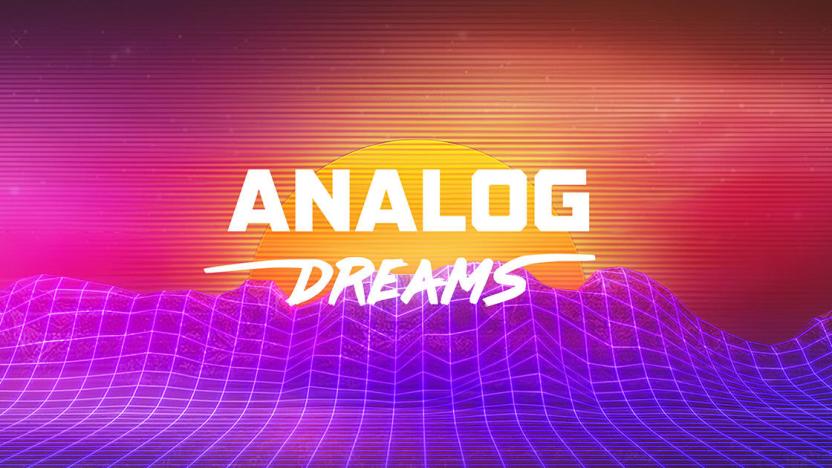
Native Instruments' $50 retro synth plug-in is currently free
The '80s had no shortage of massive-sounding synthesizers, but many of them have either gone out to pasture or are prohibitively expensive on the secondhand market. Software companies often try to digitally recreate those synths as affordable plug-ins, though, and to keep musicians busy while they're locked inside, Native Instruments has made its Analog Dreams software -- which usually costs $50 -- free to download. That means anyone with a USB keyboard or controller can work on their Duran Duran covers or an isolation-induced synth pop opus.
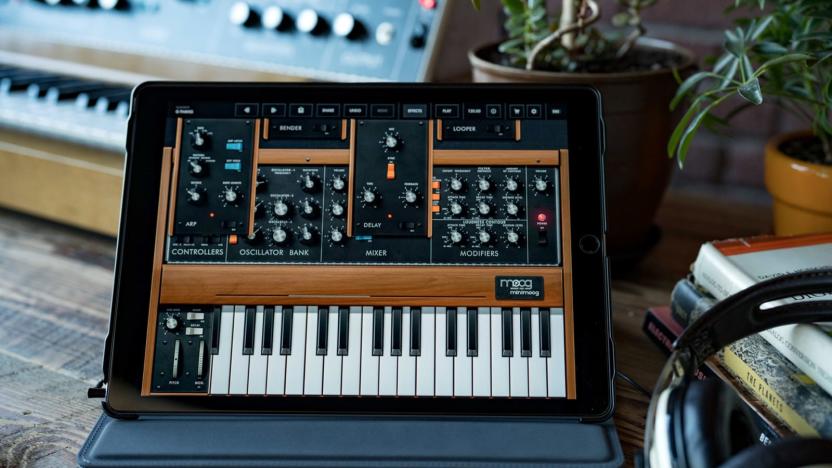
Moog and Korg make synth apps free to help musicians stuck at home
If you're a musician (or fan) whose concerts got scrapped over coronavirus concerns, you'll at least have more tools to produce music when you're at home. To start, Moog has made its Minimoog Model D iOS synth app available for free. It wasn't hugely expensive to start, but this could make it easy to recreate the first portable synth and slip some Kraftwerk- or Dr. Dre-inspired sounds into your latest track. Moog didn't say how long the price change would last, but you might want to act quickly.
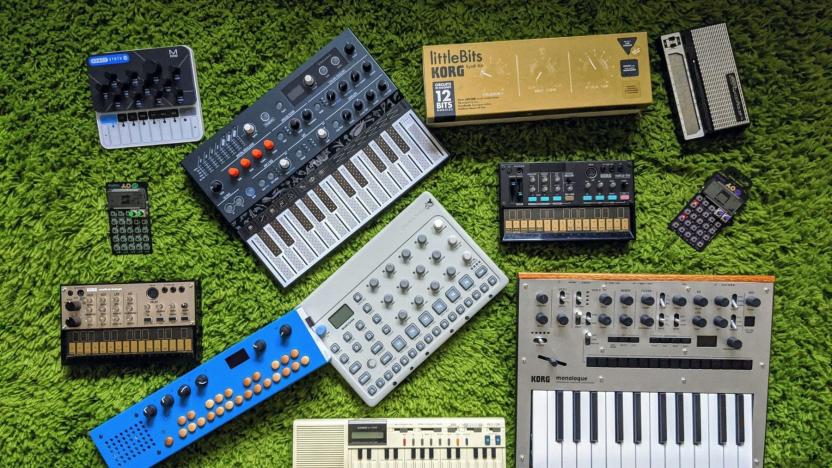
A beginners guide to buying a synth
It's no secret that there's a growing interest in synths, drum machines and other electronic music instruments. There are many reasons for that -- most obviously because electronic music is now popular music. But it's also because improved technology and manufacturing have driven the prices of such devices low enough that even the most casual musician can dabble. Plus there are a dizzying number of options for you to choose from at the entry level. So how do you get started? Should you get a portable and affordable Volca? Or that new Model:Cycles that we liked so much? And are Behringers actually any good? I know you have a lot of questions, so let's get right to it.
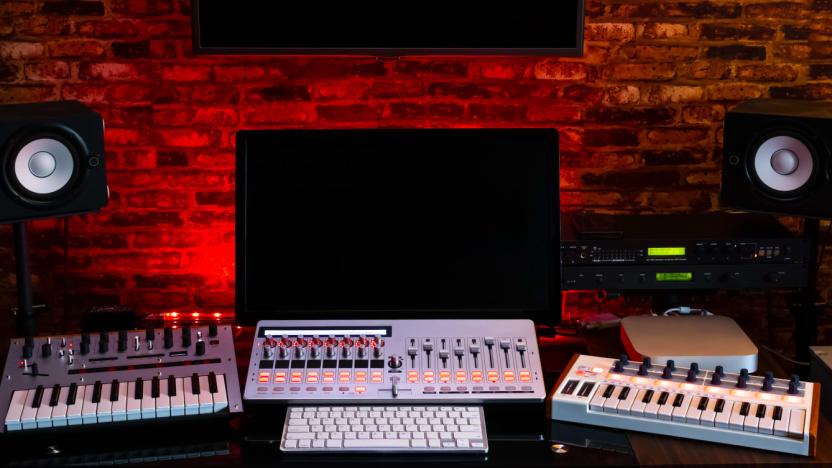
Behringer is building a free digital audio workstation
When it comes to producing music, a digital audio workstation (DAW) is one of the most important tools of the trade. This software is where musicians record and edit tracks, add effects, and play virtual instruments. Behringer -- which is well-known for its hardware-based synthesizers -- confirmed on Facebook that it will create its own DAW, which will hopefully be out sometime next year. But the company won't be going head-to-head with the likes of Apple's Logic Pro or Avid's Pro Tools: Behringer's DAW will be free.

Model:Cycles review: An affordable and approachable FM groovebox
Fair or not, Elektron has a reputation for making complex and kinda pricey electronic music gear. Last year though, it made a serious play for the entry level with the Model:Samples ($299), an affordable, sample-based groovebox that simplified Elektron's unique workflow for beginners. In a lot of ways, it's a stripped-down version of the company's Digitakt sampler. If you're familiar with the Digitakt, you've no doubt often seen it paired with the Digitone, a sort of sibling groovebox that relies on FM synthesis instead of samples. So it only makes sense that Elektron would want to give the Model:Samples its own FM-based partner in crime. Physically the Model:Cycles is basically a palette-swapped version of the Model:Samples -- Subzero to the M:S' Scorpion. At its core it's the same six-track monophonic sequencer -- but with a streamlined version of the Digitone's sound engine under the hood. Obviously though sacrifices had to be made to hit that $299 price point. As a result, the Cycles isn't exactly a budget-friendly replacement for the Digitone. It's very much its own instrument.

You can build the tiny XFM2 synth for under $100
Miniature electronics kits like the Raspberry Pi have ushered in a new generation of DIY tinkerers. And while most of these builds emulate classic gaming systems, there are plenty of other possibilities. Futur3soundz, for example, designed a synthesizer around an FPGA chip and an Adafruit digital-to-analog converter. The company says that the components can all be purchased for under $100. And while the synth has few on-board controls, it has an extensive MIDI integration, so musicians can control parameters from their keyboards, making it a viable piece of bedroom studio gear.

The synth tones of 'Blade Runner' now fit on your desk
Yamaha's CS-80 is one of the biggest synths ever -- whether in size, tone or resale price. Most notably remembered for being Vangelis' go-to instrument when composing the score for Blade Runner, the 220-pound behemoth sells for over $20,000 on the secondhand market. Black Corporation designed a replicant of the CS-80 a few years ago, and though it wowed musicians, its bulky rackmount format was a turnoff. Deckard's Dream MK2 shrinks the synth down into a desktop format, which will be easier for bedroom producers to integrate into their studios.
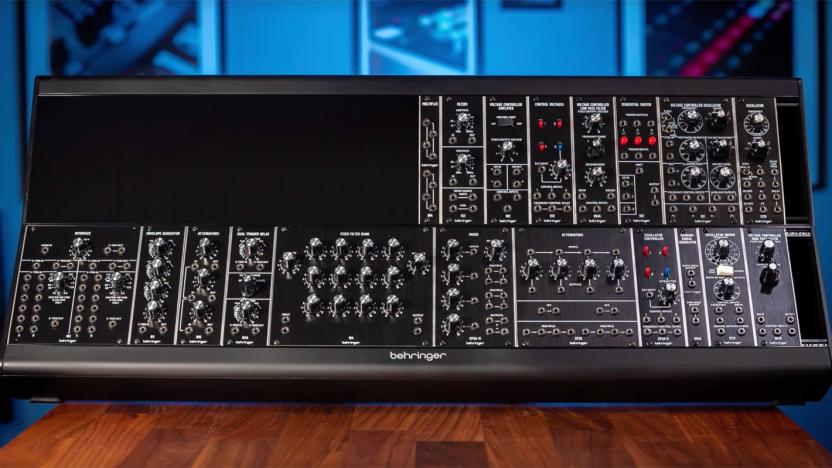
Behringer clones more well-known synths from Moog and Roland
Behringer isn't about to slow down in its effort to clone classic synths. The company has introduced two more not-so-subtle modernizations, headlined by the System 55 Modular Synthesizer (above). The Eurorack-friendly design includes more than 20 reproductions of modules from the legendary Moog 15, 35 and 55. It includes the requisite mix of attenuators, filters and oscillators needed to recreate that '70s Switched-On Bach-like sound as well as a Sequential Sequencer and a new power supply module.
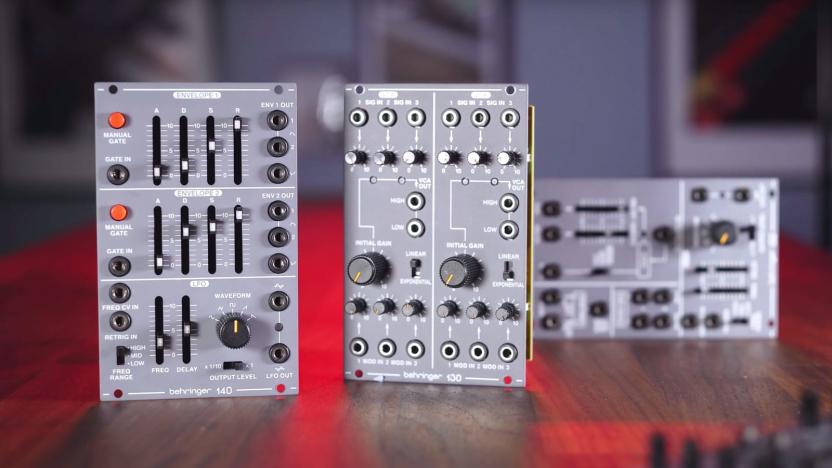
Behringer’s synth clone train keeps rolling with modular System 100
Regardless of your opinion of Behringer, you can't deny that the company is tireless in its efforts to bring affordable versions of classic synths to the masses. In 2019 alone it successfully launched clones of the Korg MS-20, ARP Odyssey, Sequential Circuits Pro-One, Electronic Dream Plant (EDP) Wasp Deluxe, not to mention the TB-303, TR-808, VP330 and SH-101 all from Roland, and a polyphonic version of the Moog Model D. And we know there are plenty more to come, like the Octave Cat. So it's no surprise that, shortly after it revealed it was getting into the Eurorack case game, Behringer announced its plan to clone some of the most iconic modular synth components ever made: Roland's System 100m.

MicroFreak update adds new oscillator and modes for simplified noise-making
When Arturia announced the Microfreak at NAMM last year, we told you there was nothing stopping the company from adding new oscillators down the line through firmware updates. Well, guess what -- it's got a new oscillator.

The Moog Subsequent 25 offers classic synth bass with modern amenities
Anytime Moog releases a new synth it's worth getting at least a little excited about. And the Subsequent 25 (or Sub 25) is no exception. It's the successor to the Sub Phatty -- basically the standard bearer for classic Moog bass sounds over the last several years. The Sub 25 takes what made its predecessor such a powerful and aggressive tone monster and just goes bigger.

Blipblox gives its kid synthesizer a grown-up makeover
Blipblox made something of a name for itself creating a synthesizer for kids. But the brightly-coloured, big-buttoned device -- with a surprisingly robust digital synth engine under its hood -- has proven such a success with adults that the company has made a grown up version: Blipblox After Dark.

Roland's Zen-Core engine lets instruments share synth sounds
Roland basically abandoned pure analog synths. Instead it's been focused on improving its digital instruments and software that pay homage to the past, while embracing the future. But here's the thing, thanks to powerful audio processors there's very little these days keeping one synth engine tied to any particular device; The Microfreak borrows heavily from Mutuable Instruments Plaits and the Organelle runs patches built in the cross-platform, for instance. Roland has apparently decided this is a harbinger of the future of synthesis and so it's launching Zen-Core, a synth engine that will work across a wide swath of its instruments.
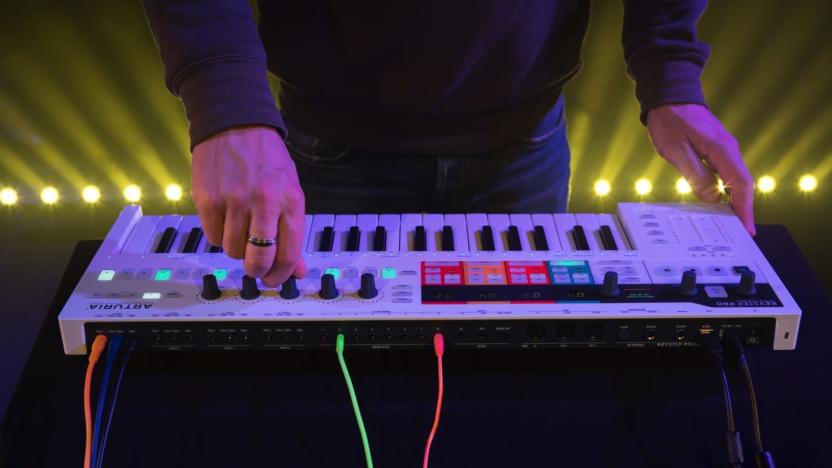
KeyStep Pro aims to be the MIDI command center of your home studio
Arturia's KeyStep is pretty beloved among hardware synth enthusiasts and bedroom producers alike. It's an affordable, versatile and impeccably built MIDI controller. Honestly, the only real criticism I have of it is that, for something that's supposed to be portable, it's just a bit too big and heavy. So, Arturia decided to lean into the idea of the Keystep as a studio staple with the KeyStep Pro and just forgot about the whole portable thing. Instead of simply adding a bunch more keys though, Arturia decided to focus on what made the KeyStep so popular in the first place. It beefed up the sequencing capabilities and added even more ports to the back for connecting gear.
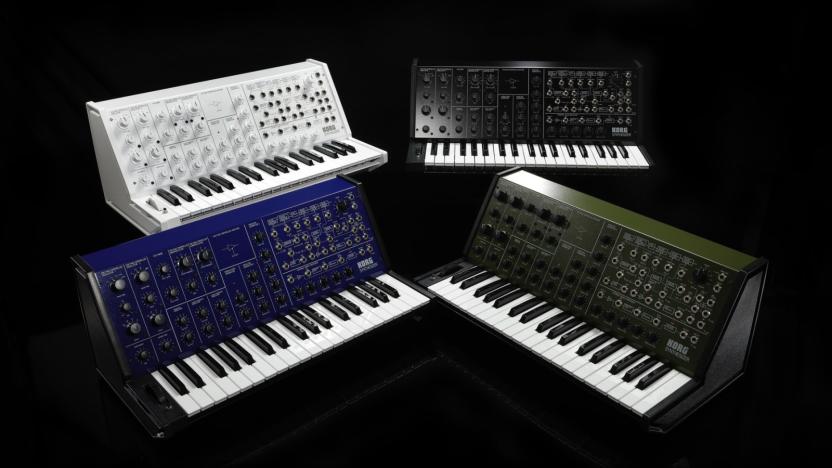
Korg unveils a full-sized, assembly-free MS-20
The Korg MS-20 is an undeniable classic. It's been reborn as an app. As a shrunken-down mini model. As a DIY kit. And then as a DIY kit again, but without the keyboard. Until now though, there hasn't been a ready-to-roll, full-size reissue. But for NAMM 2020 Korg is going all in on the nostalgia with a faithful to a fault rendition of the MS-20 -- right down to the packaging and manual.



